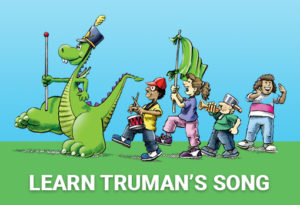Kidsville Connections – July 2020
HEROES protecting people from harsh leaders, enemies becoming best friends, friends having adventures together, losing people you love, searching for the meaning of life — these are all common themes in stories. In fact, the Epic of Gilgamesh, what is commonly known as one of the oldest surviving written stories of all time, includes all of these. Written on stone tablets, the earliest version of the story dates back to the 18th century B.C.E. and takes place in Mesopotamia, which includes modern-day Iraq and Kuwait and parts of Syria and Turkey.
Gilgamesh, who is half man/half god, is the king of Uruk. He’s handsome and brave, but he’s not a nice king. He’s so mean, in fact, that the gods create a wild man named Enkidu to keep the king from hurting the citizens. Enkidu challenges King Gilgamesh to a fight. The king wins, but the two become friends and head out on an adventure. They travel to the Cedar Forest, kill the forest guardian and cut down the Sacred Cedar. Later, they kill the Bull of Heaven. The gods are furious and sentence Enkidu to death, and he gets sick and dies.
Gilgamesh is crushed by the loss of his friend. To make himself feel better, he sets out to find the secret of eternal life. In the end, he finds out from a wise man that, “life, which you look for, you will never find. For when the gods created man, they let death be his share, and life withheld in their own hands.”
It’s not unusual for people to make up stories with their kings as heroes. It’s a way to honor their leaders. Stories have other functions, too. They entertain us. They teach us things. They inspire us. They are often a record of historical facts.
Before stories were written, one of the most effective and efficient ways to pass down lessons, history and other facts was by telling someone else. It’s still a great way to pass along information and to make someone think, smile or laugh





